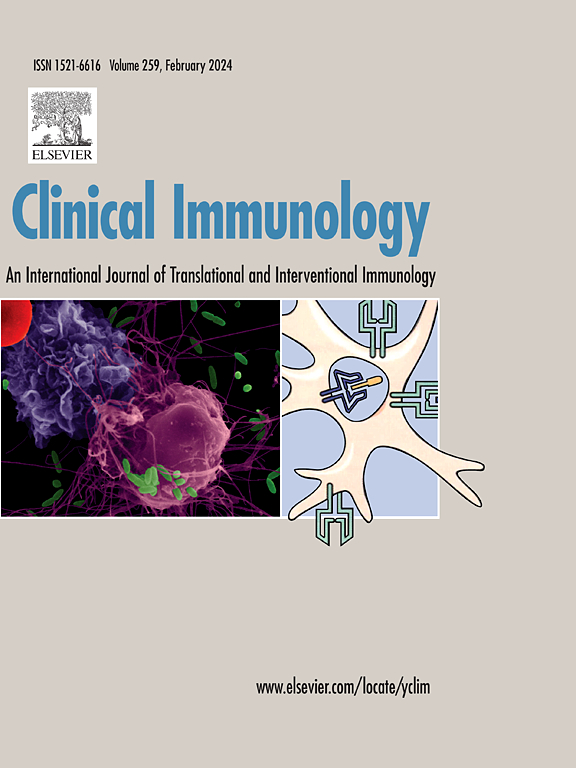T cell aging and exhaustion: Mechanisms and clinical implications
IF 3.8
3区 医学
Q2 IMMUNOLOGY
引用次数: 0
Abstract
T cell senescence and exhaustion represent critical aspects of adaptive immune system dysfunction, with profound implications for health and the development of disease prevention and therapeutic strategies. These processes, though distinct, are interconnected at the molecular level, leading to impaired effector functions and reduced proliferative capacity of T cells. Such impairments increase susceptibility to diseases and diminish the efficacy of vaccines and treatments. Importantly, T cell senescence and exhaustion can dynamically influence each other, particularly in the context of chronic diseases. A deeper understanding of the molecular mechanisms underlying T cell senescence and exhaustion, as well as their interplay, is essential for elucidating the pathogenesis of related diseases and restoring dysfunctional immune responses. This knowledge will pave the way for the development of targeted therapeutic interventions and strategies to enhance immune competence. This review aims to summarize the characteristics, mechanisms, and disease associations of T cell senescence and exhaustion, while also delineating the distinctions and intersections between these two states to enhance our comprehension.
T细胞老化和衰竭:机制和临床意义。
T细胞衰老和衰竭是适应性免疫系统功能障碍的重要方面,对健康和疾病预防和治疗策略的发展具有深远的影响。这些过程虽然不同,但在分子水平上是相互关联的,导致效应功能受损和T细胞增殖能力降低。这种损伤增加了对疾病的易感性,降低了疫苗和治疗的效力。重要的是,T细胞衰老和衰竭可以动态地相互影响,特别是在慢性疾病的背景下。更深入地了解T细胞衰老和衰竭的分子机制及其相互作用,对于阐明相关疾病的发病机制和恢复功能失调的免疫反应至关重要。这一知识将为开发有针对性的治疗干预措施和提高免疫能力的策略铺平道路。本文旨在总结T细胞衰老和衰竭的特征、机制和疾病相关性,同时也描述了这两种状态之间的区别和交集,以增强我们的理解。
本文章由计算机程序翻译,如有差异,请以英文原文为准。
求助全文
约1分钟内获得全文
求助全文
来源期刊

Clinical immunology
医学-免疫学
CiteScore
12.30
自引率
1.20%
发文量
212
审稿时长
34 days
期刊介绍:
Clinical Immunology publishes original research delving into the molecular and cellular foundations of immunological diseases. Additionally, the journal includes reviews covering timely subjects in basic immunology, along with case reports and letters to the editor.
 求助内容:
求助内容: 应助结果提醒方式:
应助结果提醒方式:


